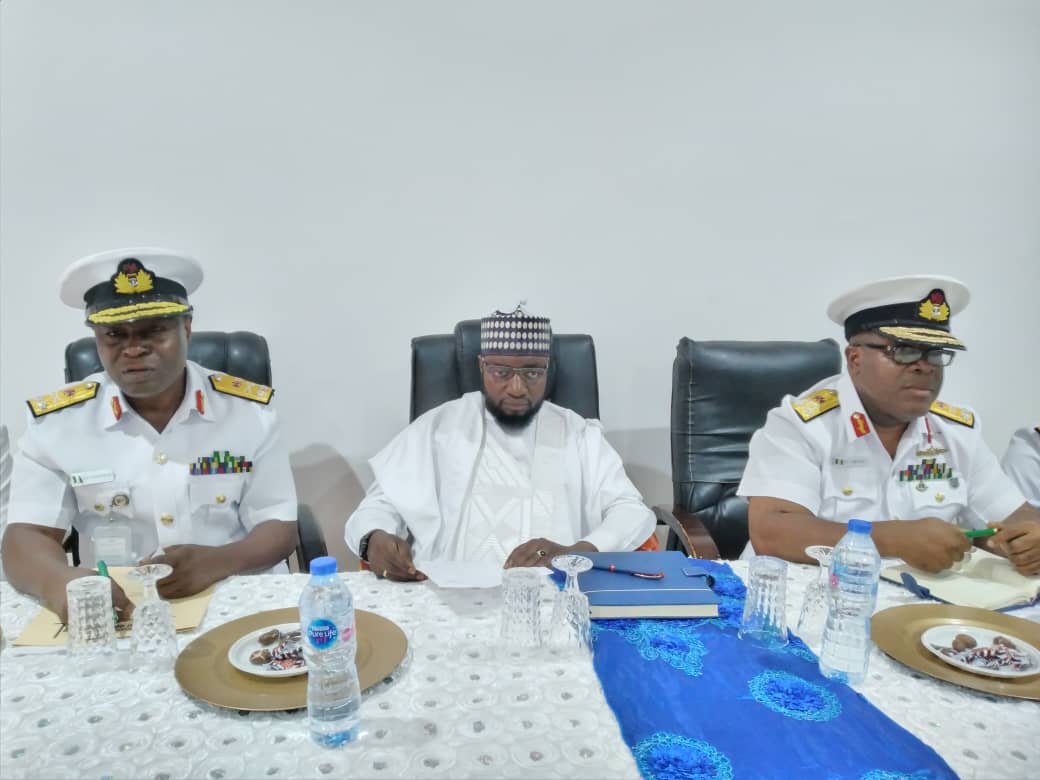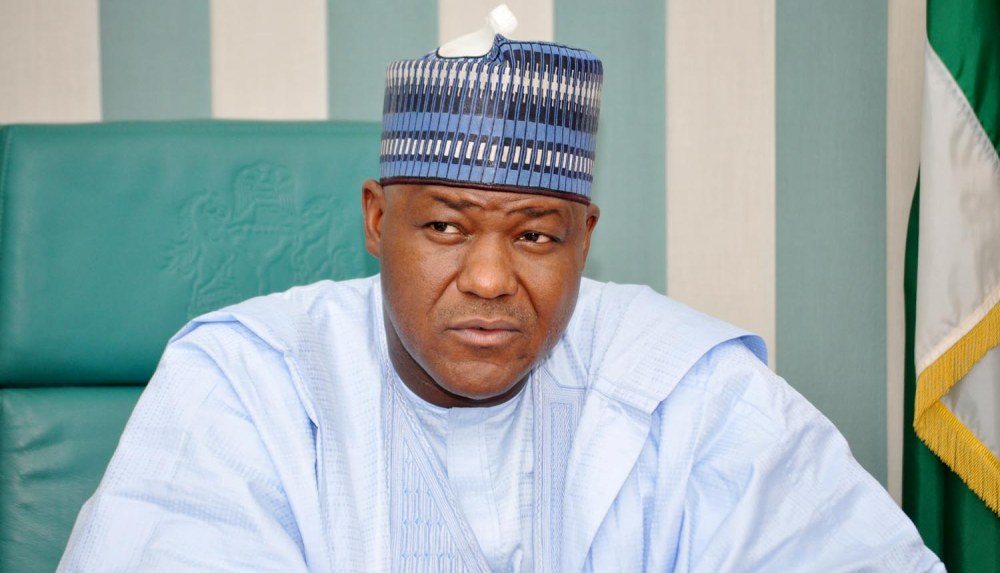News
National Assembly Helped deepen Nigeria’s democracy – Dogara
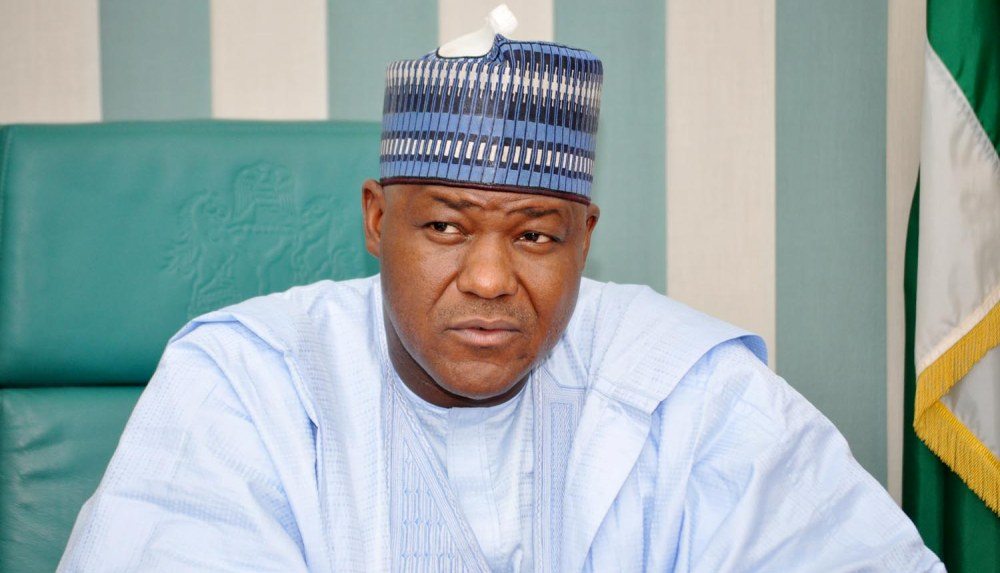
By Aaron Ossai
The National Assembly has contributed a lot in stabilising and deepening Nigeria’s constitutional democracy through strengthening of due process and the rule of law, Speaker of the House of Representatives, Hon Yakubu Dogara, has said.
Speaking on the topic, “Deepening Democracy: Role of the Legislature,” at the third Public Lecture series of Nasarawa State University, Keffi, on Monday, Hon Dogara said the Nigerian parliament’s contribution to deepening democracy through its various functions helped to stabilise democracy in the country.
Going down memory lane, the Speaker narrated how the bill he sponsored in the 7th Assembly which sought to simply procedures for impeachment of the President and Vice President was defeated during the constitution amendment exercise.
He lamented that the provisions of section 143 of the 1999 constitution makes it impossible for the National Assembly remove the President or Vice President and described it as “satanic verses”.
He maintained that democracy is a government of laws and not of men and that with provisions of section 143 in place Presidents can choose not to obey the law saying, “because he can choose the laws to obey without any retribution
Hon Dogara, argued that democracy cannot thrive without citizens’ active participation because it is the responsibility of the people to protect democracy and hold leaders accountable
“There can be no democracy without the active participation of the citizens. Any country where the government fears the citizens then it is a democracy.
He declared,”The legislature in Nigeria has contributed immensely in deepening the practice of constitutional democracy in Nigeria, especially since the introduction of the 1999 Constitution, in its various functions. If Democracy rests on the Due process and the Rule of Law, it therefore means that our Democracy can only be as deep as the laws upon which it is built.”
The Speaker also noted that the 8th House of Representatives under his leadership as Speaker, has made outstanding contributions to deepening democracy in Nigeria through the faithful implementation of its Legislative Agenda, which serves as a compass of its legislative activities for four years (2015 – 2019) to deepen democracy in Nigeria.
He added that the 8th Assembly achieved this by providing leadership in the areas of accountable and transparent government, citizens engagement, constituency representation, collaboration with its counterpart in the Senate and other arms of government to legislate for the common good of the Nigerian people, legislation to create reforms in Nigeria’s national economy and development, tackle poverty, unemployment, confront the scourge of corruption, terrorism and security challenges in the country, environment and reduction in the cost of running government, reduce wastage and tackle National Revenue leakages.
The Speaker also said other areas the House has been committed to playing its part include rescuing Nigeria from the clutches of hunger, poverty, disease, social, economic, political and infrastructural quagmire and ensuring transparency and accountability, not just by the House of Representatives but also by government at all levels.
“Even the most casual observer of Nigeria’s democracy in the last three electoral cycles would admit that despite perceived gaps in the exercise of its oversight mandate, the legislature at the national level has achieved a modicum of institutional growth. At the national level, the legislature is increasingly becoming more assertive in the process of law making,” he stated.
Hon Dogara said it was in view of the fact that a weak legislature is antithetical to good governance and consolidation of the country’s hard won democracy, that the National Assembly, through various legislative measures, intervened to specifically strengthen the Legislative institution in order to position it to play its prominent role in our constitutional democracy.
“The National Assembly amended the Constitution in 2010 that placed it on the first line charge, thereby ensuring its relative financial and administrative autonomy.
“Furthermore, the National Assembly set up the National Institute of Legislative Studies to provide crucial capacity enhancement for legislators, legislative staff and the institution as a whole.”
On issues of national unity and resolving crises and stemming centrifugal forces in Nigeria, he appraised the legislature as outstanding, citing, among others, examples of the enactment of The Niger Delta Development Commission (Establishment) Act 2000 and The Revenue Allocation (Allocation of On Shore-Off Shore Dichotomy) Act, 2004 for which the National Assembly overrode presidential veto, and the North East Development Commission Act, 2017 to rehabilitate, reconstruct and re-develop the zone.
He also noted that the legislature shares in the success of Nigeria’s 2011 which were acclaimed the most credible since 1999 and that the 2015 general election was even much better because of the specific interventions on electoral reform as contained in the First and Second Constitution Alteration Acts, 2010-2011 to grant the financial independence of INEC, consent of the Senate for the appointment of State Independent Electoral Commissioners, enhance internal party democracy through the introduction of compulsory party primaries with monitoring by INEC, authorising INEC to de-register Political Parties, introduction of electronic accreditation by INEC, among others.
The Speaker also said the House of Representatives has exposed corruption through about hundreds of investigative hearings on economic crimes in the country over the years, with the 8th House of Representatives conducting over 50 Investigative Hearings.
“These include investigations on the award of contract for the rehabilitation of Nigerian Railways; Installation of CCTV Cameras in Abuja and Lagos, alleged $17 billion stolen from undeclared crude oil and LNG exports to global destinations; The investigative hearing on Centenary City Project; Pre- Shipment investigation, Amnesty programme and Several anti- corruption investigations have also been conducted by the 8th House of Representatives.”
Another area he said the legislature has deepened democracy is through representation, where the legislator, due to his or her close contact with constituents, get direct knowledge of their needs and petitions on their grievances and agitations.
The Speaker explained, “Representation is at the very heart of representative and constitutional democracy
“It is this democratic theory of representation that gave rise to what is now commonly known as Constituency or Zonal Intervention projects, which is now an entrenched policy deliberately crafted to ensure equitable representation of every constituency in the allocation and distribution of the resources of the nation.
“The rationale is that an elected member of parliament is closer to his people than unelected persons who hold sway in the budgetary processes and policy execution.
“The Representative role of the legislature includes providing democratic legitimacy for the government. The accessibility of the Legislature to the ordinary citizen helps to engender confidence in the system. Citizens who regard their government as legitimate are more likely to obey laws, support the regime and accommodate diverse points of view. Citizen Participation in the legislative process is vital to creating this sense of legitimacy.”
News
The Most Shocking A/Court ‘Judgment’ in Nigerian History: An unfortunate precedent that should not be allowed to stand
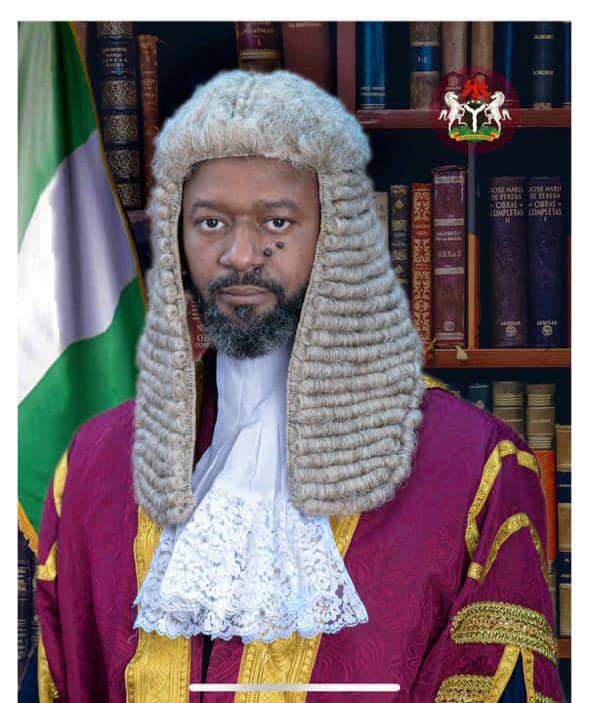
The last is yet to be heard of wide ranging ex-parte orders as this time around, the charade has moved to the Court of Appeal, Lagos Division. In the case of FBN Quest & Another vs. Nestoil & Others, the Court of Appeal’s ex parte orders are not only egregious but a chilling sign of judicial capture, smacking of dirty practices at best and corruption at worst.
On Thursday, 27th November 2025, at exactly 2:00pm, Justice Yargata Nimpar delivered a ‘ruling ’ that appeared like a thief in the night, a ghost and unscheduled, the said decision came upon a Motion Ex-parte which was not heard not argued in open court, yet it surfaced, fully written, signed, stamped, and delivered as though it had lived a full life on the Court of Appeal docket.
For many Nigerians, the judiciary has again weathered the storms. Veterans of the legal system describe this episode as “a daylight heist… a judicial armed robbery without guns.”
The controversies over wide ranging ex-parte applications, it would seem, has found its way to the Court of appeal, an intermediate court with limited original jurisdiction as donated to it by statute.
In this instance, barely two weeks ago, we reported the ex-parte orders against NESTOIL and the other defendants listed in the suit before the Federal High Court which led to the transfer of the suit to another judge.
The said interim orders were vacated by effluxion of time, being that ex-parte orders last for only 14 days.
The court however ordered parties to maintain status quo and adjourned the Motion on Notice for hearing by the consent of the parties. That Motion is still pending before the Federal High Court.
It would seem that in order to frustrate that pending Motion, the Plaintiffs somehow filed a similar application to the Court of Appeal which was granted an order ex-parte directing the Lower Court not to take any further steps, including determining the pending application filed by Plaintiffs (now Appellants).
This magically resurrected, fast-tracked application seem to have been rubber-stamped at the fictional “Appeal Bench of Shadows,” as insiders have begun calling it.
A CASE THAT NEVER EXISTED — YET RECEIVED A JUDGMENT
Our Judiciary correspondent gathered that when the court’s official list for the day was released, nothing seemed amiss. No controversial cases. No unexpected hearings.
But somewhere inside the dusty chambers of bureaucracy, a secret file was already being prepared and by 2pm, a judgment carrying the signatures of an entire appeal panel had surfaced — even though none of them had appeared in open court and when the case itself had never been argued before any High Court, making an appellate ruling legally impossible.
By evening, whispers had turned into rumblings. Court workers who handled the mysterious document reported unusual instructions: No public sitting; No mention on the court list; No access to case filings; No digital record and No audio recording of proceedings. Yet an order was made retrospectively to undo a completed act! which is yet another impossibility in law, because the exparte order cannot restore what has been already executed.
“It was like dealing with a ghost file,” one clerk said. “It appeared from nowhere and disappeared into official archives as though it had always existed.”
This judgment, once delivered, spread like wildfire, with legal scholars calling it “a constitutional impossibility.” Veterans said they had never seen anything similar since the 1970s.
Enquiries from our judiciary correspondents indicate that an application can only be hinged upon a valid Notice of Appeal against a decision of a lower court before any application can be entertained at the Court of Appeal.
Further Investigations by our judiciary correspondent reveals that no such Notice of Appeal has been filed nor served on the respondents; no parties have been invited to Settle Records and no Records of Appeal have been transmitted.
One wonders the platform or upon which grounds the ex-parte order was made, observed one senior lawyer, especially as a similar pending application filed by the Appellants has been adjourned for Hearing by the Federal High Court.
Furthermore, the case at the trial court before Justice Osiagor has not been heard on its merits, which documents was placed before the appellate court and all applications before the judge has not been heard or is the court of appeal now a trial court.
A JUDICIARY AT A CROSSROADS
Public outrage rose quickly. Lawyers described the situation as “a hijacking of justice by shadowy interests.” Civil society groups demanded explanations.
A Judiciary where justice can be manufactured behind closed doors…a legal system where influence not merit, decides outcomes…and an institution tested by the weight of powerful external forces, et cetera should not be allowed to thrive.
AN ERA-DEFINING SCANDAL
This judgement will stand as one of the most dramatic challenges ever faced by Nigeria’s justice system. The shockwaves has rippled far beyond the courtroom — touching politics, business, security agencies, and public trust.
One thing is clear: This is the kind of judicial earthquake that rewrites history, shakes institutions, and forces a nation to confront the truths it fears the most. Our judicial correspondences were able to get an incline of the ex-parte orders made by the Court of Appeal as follows:
- AN ORDER of interim restorative injunction reversing all steps taken by the Respondents and/or persons purporting to act on the instructions of the Respondents and which steps or actions were taken pursuant to the order of the Federal High Court coram Osiagor, J made on the 20th day of November 2025 pending the hearing and determination of the Appellants’ Motion on Notice filed on the 26th day of November 2025.
- AN ORDER of interim injunction restraining the Respondents, their agents, servants, affiliates, and privies from interfering with and interrupting the Receiver/Manager in the performance of his duties pending the hearing and determination of the Appellants’ Motion on Notice filed on 26th November 2025.
- AN ORDER staying further proceedings at the lower court pending the hearing and determination of the Appellants’ Motion on Notice filed on the 26th November 2025.
A SHOCKING DEPARTURE FROM JUDICIAL NORMS
Therefore, the Lagos Court of Appeal’s decision to grant ex parte orders in FBN Quest & Another vs. Nestoil & Others stunned the legal community as ex-parte rulings are meant for rare emergencies and hardly exercised by appellate courts. By acting without hearing both sides, while the matter was already before the Federal High Court, the Court of Appeal has undermined the principle of natural justice and distorted its own role.
NIGERIAN IMAGE AT RISK
At a time when Nigeria is striving to reposition its global reputation, this case sends the wrong message. It portrays the country as one where courts can be hijacked by private interests, where fairness is discarded, and where corruption lurks behind judicial robes. For investors and international partners, it reinforces damaging stereotypes of weak institutions and compromised justice.
AN URGENT CALL FOR INVESTIGATION
These orders are not just irregular — they are evidence of judicial capture. They must be investigated urgently. The Chief Justice of Nigeria, the National Judicial Council, the President of the Court of Appeal and the Nigerian Bar Association cannot remain silent. If appellate courts become arenas for ex-parte adventures, Nigeria’s justice system risks collapse under the weight of manipulation.
CLOSING NOTE
The Court of Appeal’s conduct in FBN Quest & Another vs. Nestoil & Others is more than a misstep, it is a warning sign of judicial capture. If Nigeria is serious about restoring its image and strengthening democracy, this case must be investigated, accountability enforced, and reforms implemented. Anything less would be an abdication of the judiciary’s sacred duty to uphold justice. We must not allow that to happen.
A very Senior lawyer emphasize that the exparte order of the court of appeal lagos division in Nestoil has the possibility of eroding administrative control of Heads of superior Court from assigning or re assigning matters within their respective courts. Furthermore both the President of the Court of Appeal and the Chief Justice of Nigeria may not have the authority to disband a panel and re- constitute another panel over any matter in their respective courts. This decision is a total anarchy to the judiciary and urgent steps must be taken to vacate the strange Court of appeal exparte order.
The conduct of the court of appeal justices is not excusable anywhere in the world and it’s indeed has brought the court of Appeal justices who constituted the panel to ridicule
News
Pius Akutah’s Alleged Fraud at Nigerian Shippers Council Uncovered
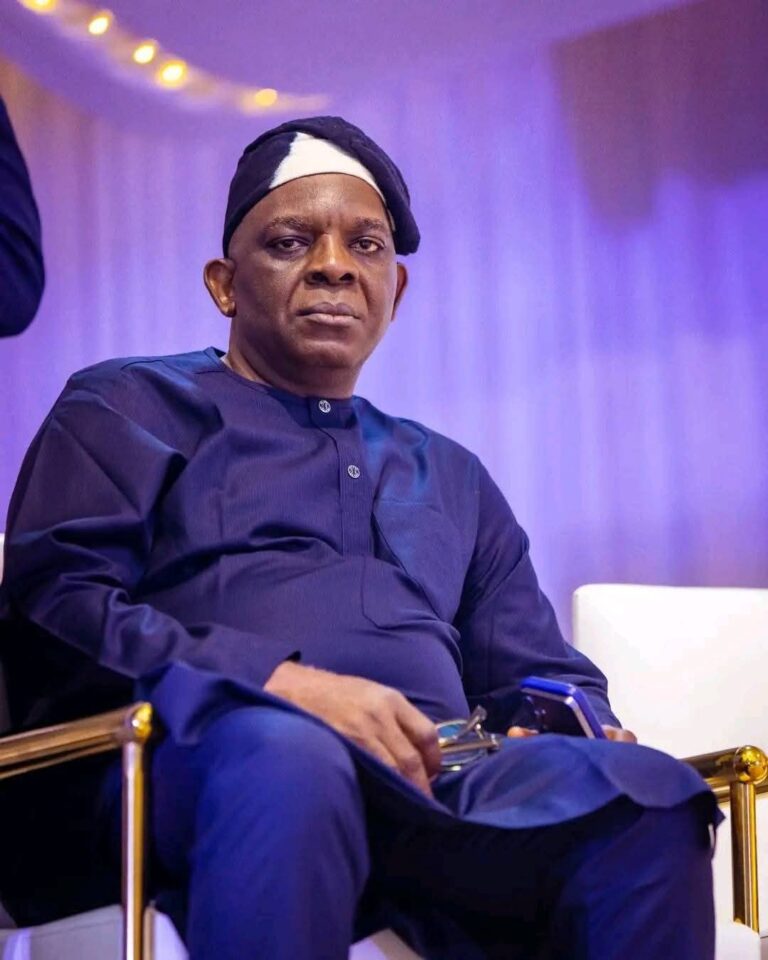
Investigations by Nigerian Concord Newspaper reveal that the Executive Secretary of the Nigerian Shippers Council, Mr. Pius Akutah, has allegedly misappropriated public funds for a lavish lifestyle.
According to our findings, within months of assuming office, Akutah allegedly purchased a bulletproof SUV valued at approximately N850 million. In addition, he is reported to have acquired over twenty exotic SUVs for use as a convoy.
Akutah is also said to have acquired multiple high-value properties, including three in Abuja’s Maitama and Asokoro districts worth over N2 billion, and two in Lagos’ Banana Island valued at N1.8 billion. These acquisitions appear far beyond the scope of his official salary and allowances.
Further investigation suggests that Akutah may be using public funds to support political ambitions, including allegedly grooming militants across 23 local government areas in Benue State for a potential 2027 gubernatorial bid.
Staff of the Shippers Council reportedly claim that Akutah frequently accesses the council’s treasury without proper authorization. Some insiders have indicated that a petition will soon be filed with the EFCC, ICPC, and the Presidency to report his alleged misconduct.
*
News
Pius Akutah’s Alleged Fraud at Nigerian Shippers Council Uncovered

Investigations by Nigerian Concord Newspaper reveal that the Executive Secretary of the Nigerian Shippers Council, Mr. Pius Akutah, has allegedly misappropriated public funds for a lavish lifestyle.
According to our findings, within months of assuming office, Akutah allegedly purchased a bulletproof SUV valued at approximately N850 million. In addition, he is reported to have acquired over twenty exotic SUVs for use as a convoy.
Akutah is also said to have acquired multiple high-value properties, including three in Abuja’s Maitama and Asokoro districts worth over N2 billion, and two in Lagos’ Banana Island valued at N1.8 billion. These acquisitions appear far beyond the scope of his official salary and allowances.
Further investigation suggests that Akutah may be using public funds to support political ambitions, including allegedly grooming militants across 23 local government areas in Benue State for a potential 2027 gubernatorial bid.
Staff of the Shippers Council reportedly claim that Akutah frequently accesses the council’s treasury without proper authorization. Some insiders have indicated that a petition will soon be filed with the EFCC, ICPC, and the Presidency to report his alleged misconduct.
*
-

 Uncategorized5 years ago
Uncategorized5 years agoFG, states urged to harness flooding for ranching, others with technology – Agbaje
-

 Headlines10 years ago
Headlines10 years agoBreaking: EFCC seals Borno House of Assembly, as Hon members take to their heels
-

 News11 years ago
News11 years agoNigeria Security Operatives Stage Manhunt For Homosexual Perpetrator
-

 News9 years ago
News9 years agoHow 21-year-old Girl fled community over accusation of lesbianism
-

 News10 years ago
News10 years agoYobe Gov Moves Against Deputy
-

 Opinion7 years ago
Opinion7 years ago7 signs she has friend zoned you
-
Technology4 years ago
Online job placement company headhunts women
-

 Headlines10 years ago
Headlines10 years agoBorno Dep Gov Abducts Another Church Leader


